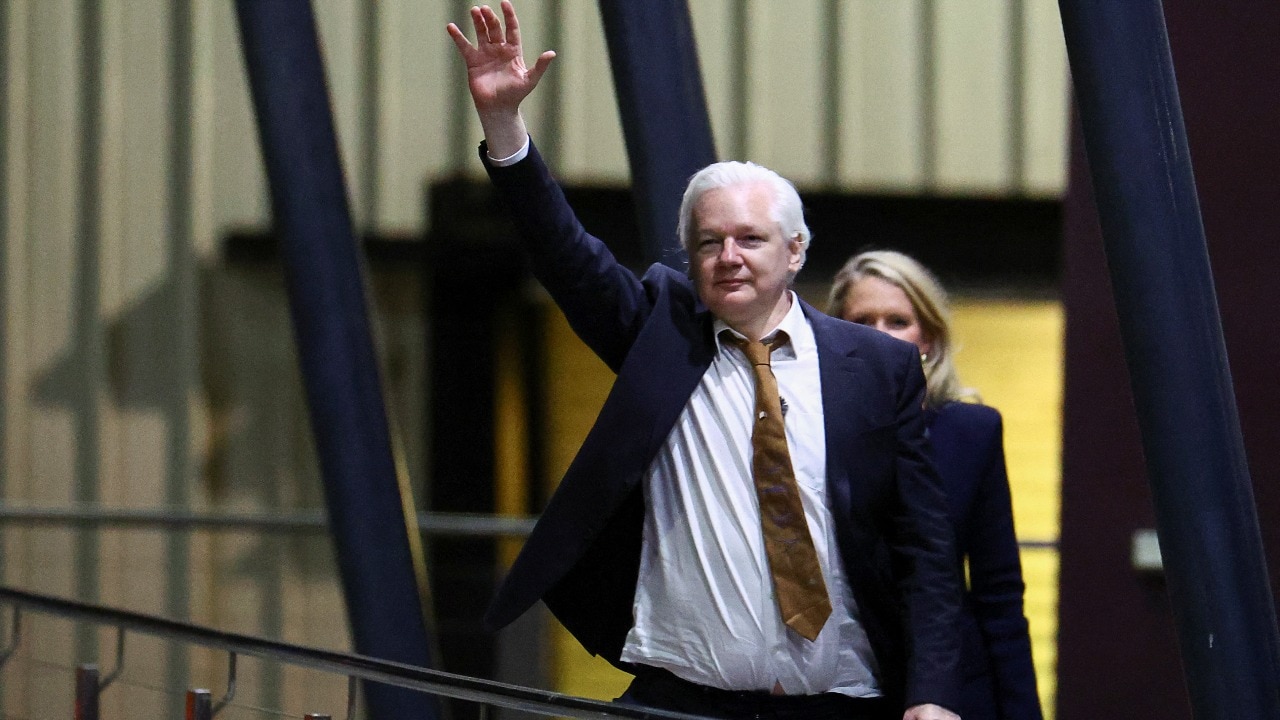2024-06-27 02:31:35
Hours after Julian Assange landed in Australia to an ecstatic welcome on Wednesday evening, the US State Department said Assange’s actions put lives at risk even as the judge who accepted the WikiLeaks founder’s guilty plea to resolve his case noted that no victims had been identified.
A spokesperson for the State Department, however, preferred not to give any examples of the harm caused by Assange’s release, after he was asked by reporters to provide for, if any.
The spokesperson said the department’s involvement in the resolution of Assange’s case was very limited.
Assange spent his first night in 14 years as a free man back at home in Australia after pleading guilty to violating US espionage law in a deal that sets him free from a 14-year legal battle.
He had battled extradition to Sweden on sexual assault allegations and to the US, where he faced 18 criminal charges tied to WikiLeaks’ release in 2010 of hundreds of thousands of US classified military documents and diplomatic cables.
Chief US District Judge, Ramona V Manglona, in the US territory of Saipan accepted Assange’s guilty plea to a single criminal count.
While Washington has often called Assange’s actions reckless and claimed they put its agents at risk, the judge noted that the United States could not identify any personal victim from them.
“There’s another significant fact – the government has indicated there is no personal victim here. That tells me the dissemination of this information did not result in any known physical injury,” the judge said.
The State Department spokesperson reiterated the US position when asked about the judge’s comments.
“The State Department did an extraordinary amount of work when we found out that these cables were going to be published to get people out of harm’s way,” the department’s spokesperson said.
The State Department said the Justice Department acted independently in the case.
The spokesperson added that there was some limited coordination between the State Department and the Australian government recently.
“There was some small coordination role between our embassy and the Australian government just in the past few days, but this was other than a law-enforcement matter handled through law-enforcement channels,” he told reporters.
AUSTRALIAN OPPOSITION LEADERS SAY ASSANGE ‘NO MARTYR’
Even as Australian leaders celebrated Assange’s freedom, the conservative opposition on Thursday cautioned the government against hailing the WikiLeaks founder as a ‘hero’.
The conservative opposition also raised concerns about portraying Assange as a hero after he spent more than a decade trying to avoid prosecution and then pleaded guilty.
In an X post, opposition leader in the Senate, Simon Birmingham, welcomed Assange’s release, but said, “He’s no martyr and was never a political prisoner denied access to justice”.
Birmingham also cautioned Australian Prime Minister Anthony Albanese against meeting Assange and said the release could strain Australia’s ties with the United States, but that was rejected by Foreign Minister Penny Wong.
James Paterson, the opposition’s home affairs spokesperson, told Sky News Assange had evaded lawful extradition requests by hiding in the Ecuadorean embassy and used his legal rights in the UK to challenge it over many years.
Assange’s supporters and free speech advocates view him as a victim because he exposed US wrongdoing and potential crimes, including in conflicts in Afghanistan and Iraq.
The WikiLeaks founder has not spoken publicly since being released.
Julian Assange, Julian Assange walks free, Julian Assange pleads guilty, Julian Assange no hero, Julian Assange no martyr, US State Department statement on Julian Assange,
Source link
![]()
